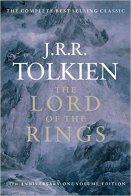Third Person: The Deific Approach to Narrative
Last week, I posted a blog about first person narrative, during which I gave some pros and cons to that style of writing. First, that blog was a huge success, and I have you all to thank for it. Thank you!
Now the pressure’s on to make every post that informative and that helpful. I can only hope I don’t disappoint.
If I’m being honest, I don’t see vary many true third person narrative stories anymore. Most books I read (and I read a lot) are either told in first person or third person limited omniscient. Third person allows the reader into every character’s thoughts at any time. The author isn’t limited in any scope. He can (and should) decide when and how to provide information to the reader. I had to go pretty deep into my library to find a few examples, but I did.
 The Belgariad by David Eddings: I read the first three books in this series. Eddings is a great author who may be underrated or under-discussed. I talk about fantasy fiction and reading pretty much every day, and his work doesn’t come up very often (though someone mentioned him when I talked about cinematic universes). In all of my library, his was the one book or series that jumped out at me when I considered what I’ve read that effectively uses third person narrative.
The Belgariad by David Eddings: I read the first three books in this series. Eddings is a great author who may be underrated or under-discussed. I talk about fantasy fiction and reading pretty much every day, and his work doesn’t come up very often (though someone mentioned him when I talked about cinematic universes). In all of my library, his was the one book or series that jumped out at me when I considered what I’ve read that effectively uses third person narrative.
 The Lord of the Rings by J.R.R. Tolkien: I know I said no other books jumped out at me, but I read LOTR in 2000 and Belgariad in 2010, so maybe give a guy a bit of a break. I don’t need to build up the success of one of the best selling series (not to mention films) in history. Tolkien is simply the standard by which all other fantasy authors are compared. I can’t tell you how many books or reviews I’ve seen that read: “Better than Tolkien” or “Takes the world Tolkien created and improved it.” When you compare every other book to one book, you prove that book to be the standard.
The Lord of the Rings by J.R.R. Tolkien: I know I said no other books jumped out at me, but I read LOTR in 2000 and Belgariad in 2010, so maybe give a guy a bit of a break. I don’t need to build up the success of one of the best selling series (not to mention films) in history. Tolkien is simply the standard by which all other fantasy authors are compared. I can’t tell you how many books or reviews I’ve seen that read: “Better than Tolkien” or “Takes the world Tolkien created and improved it.” When you compare every other book to one book, you prove that book to be the standard.
Third person omniscient used to be the standard for most fiction. It’s evolved over the years, and I may just manage to accidentally fail to find it in fiction these days. If you know of a popular series that uses it, feel free to let me know in the comments. In the mean time, let’s take a look at what it gives writers:
Pros:
 Unlimited scope: The author has the power to give the reader every thought and every opinion in every scene for every character in the book. This allows readers all the insight they could ever ask for. The author has the most control over what to reveal and what to withhold. The author allows the reader to see every angle at any time. That also makes the information more immediate. Where first person might have the reader wondering at what point they’re getting this information, the reader doesn’t worry about that issue with third person narrative. The reader gets everything as it’s happening.
Unlimited scope: The author has the power to give the reader every thought and every opinion in every scene for every character in the book. This allows readers all the insight they could ever ask for. The author has the most control over what to reveal and what to withhold. The author allows the reader to see every angle at any time. That also makes the information more immediate. Where first person might have the reader wondering at what point they’re getting this information, the reader doesn’t worry about that issue with third person narrative. The reader gets everything as it’s happening.
More reliable: I’d mentioned in my post about first person narrative that it’s hard to address the perspective of the narrator. It makes the speaker a little hard to believe. Third person narrative is more trustworthy because you know you’re getting the author’s honest account of what the characters are doing or thinking. Sure, the characters might be wrong, but the reader knows. There’s a reasonable expectation of objectivity for the readers to work with.
Cons:
 Unlimited scope: Nope, that’s not a typo. Like Spidey says, with great power, comes great responsibility. Now the writer has to choose what information to reveal when. More importantly, the writer has to decide WHY the reader wouldn’t get the information sooner. I remember thinking about this while reading The Belgariad. I constantly wondered why some information wasn’t getting filtered. Readers like me are frustrated by having information the characters could need. Believe it or not, this is EXACTLY how soap operas become so addictive. The consumer is just aching for some way to get that secret to the person who needs it. In fiction, it’s more difficult because the characters are interacting, and the author is providing insights to the characters’ thoughts. Authors have to watch out for the plot holes created when revealing information that should have come to light sooner based on how the story progresses.
Unlimited scope: Nope, that’s not a typo. Like Spidey says, with great power, comes great responsibility. Now the writer has to choose what information to reveal when. More importantly, the writer has to decide WHY the reader wouldn’t get the information sooner. I remember thinking about this while reading The Belgariad. I constantly wondered why some information wasn’t getting filtered. Readers like me are frustrated by having information the characters could need. Believe it or not, this is EXACTLY how soap operas become so addictive. The consumer is just aching for some way to get that secret to the person who needs it. In fiction, it’s more difficult because the characters are interacting, and the author is providing insights to the characters’ thoughts. Authors have to watch out for the plot holes created when revealing information that should have come to light sooner based on how the story progresses.
Less relatable: The reliability of the information in narrative is proportional to the reliability of the character. Just think about it. If I’m in everyone’s head, when do I have the opportunity to grow closer to any one person? This doesn’t mean that readers can’t relate to characters in this narrative, but it can happen. As successful as The Lord of the Rings was, a lot of readers will tell you that it was hard to connect to some of the characters. I personally consider the books to be more of a history of events than a story. It’s well told and beautifully written, but a lot of my affection for the characters has more to do with the movies than the books. Perhaps it would be more accurate to say the degree to which someone sympathies with a character is proportionate to the amount and quality of time the reader sees from the character’s point of view.
 More challenging plot twists: In first person, all an author has to do to keep the readers in the dark is keep the main character in the dark. Third person narrators don’t have that option. I touched on this above, but this specific aspect of the scope requires a bit more information. The reason readers don’t know what the bad guy is up to is because the author never goes to the bad guy’s perspective, which makes the bad guy less sympathetic. (and now I have to write at least one blog about sympathetic characters.
More challenging plot twists: In first person, all an author has to do to keep the readers in the dark is keep the main character in the dark. Third person narrators don’t have that option. I touched on this above, but this specific aspect of the scope requires a bit more information. The reason readers don’t know what the bad guy is up to is because the author never goes to the bad guy’s perspective, which makes the bad guy less sympathetic. (and now I have to write at least one blog about sympathetic characters.
Just realize that hatred isn’t the worst thing a reader can feel toward a character, it’s ambivalence.) So where I can keep the reader clueless in first person, it’s much trickier in omniscient storytelling because the reader knows what everyone is thinking (or at least could). This touches on my big problem with this form of storytelling. The trouble is withholding information in such a was as to allow the reader to learn something when it’s necessary without making the reader point out any number of reasons the character should have had that information already. Sure, as authors, we have the privilege to withhold as much information as we want, but the more you withhold, the less satisfying or more contrived a plot twist or conclusion will feel.
 Summary: Third person is great for stories with a lot of scope and few plot twist elements. Your events need to be more interesting because your characters might not be as familiar (and therefore compelling) to your readers.
Summary: Third person is great for stories with a lot of scope and few plot twist elements. Your events need to be more interesting because your characters might not be as familiar (and therefore compelling) to your readers.
Did I leave something out? Care to provide a different side of some of these issues? As always, feel free to use the comments section. I had a lot of fun discussing the craft with the last post, and I look forward to more of the same.
Thanks for reading,
Matt





